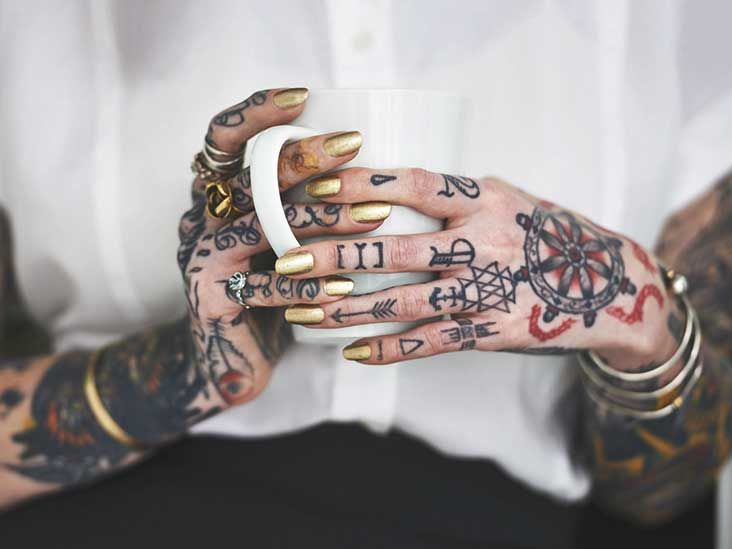Before getting a tattoo, it’s important to consider various factors to ensure both your safety and the quality of the tattoo. One question that often arises is whether it is safe to get a tattoo while taking antibiotics. Let’s explore this topic and provide some insights to help you make an informed decision.
Table of Contents
ToggleAllergies and Tattoo Inks
Before getting a tattoo, it’s crucial to find out if you have any allergies to the ingredients in tattoo ink. Allergic reactions can vary from mild irritation to severe complications. To avoid any potential issues, ask your tattoo artist about the ingredients in their ink. If you are allergic to any of the ingredients, consider using an alternative ink or refrain from getting a tattoo altogether.
However, it’s important to note that tattoo inks are not regulated, so it can be challenging to know exactly what ingredients they contain. This lack of regulation makes it even more crucial to communicate with your tattoo artist and ensure they use safe and reliable tattoo inks.
Safety Measures at Tattoo Parlors
When considering getting a tattoo, it’s essential to choose a reputable and professional tattoo parlor. Here are a few things to consider when selecting a parlor:
Licensing and Inspection
Ensure that the tattoo parlor is licensed and has undergone inspections by health agencies. Licensed parlors are required to meet specific safety standards and regulations to operate legally.
Reputation
Do some research before deciding on a tattoo parlor. Reading online reviews and seeking recommendations from others can provide valuable insights into the shop’s reputation and safety practices. It’s always best to choose a parlor with a solid reputation for maintaining high standards of cleanliness and safety.
Safety Procedures
A vital aspect of a tattoo artist’s professionalism is their adherence to safety procedures. Your tattoo artist should always use a new, sterilized needle for every tattoo. They should also wear gloves at all times during the tattooing process. Don’t hesitate to inquire about the safety measures followed by your potential tattoo artist.
Proper Aftercare
Proper aftercare is essential for the healing and longevity of your tattoo. Your tattoo artist should provide you with clear instructions on how to take care of your tattoo after the session. If they don’t, make sure to reach out to them for guidance.
To ensure proper healing, follow these general aftercare guidelines:
- Remove the bandage 3 to 5 hours after getting the tattoo.
- Wash your hands with antibacterial soap and water.
- Use a clean, dry washcloth or paper towel to gently pat the area dry and remove any blood, serum, or excess pigment.
- Allow the area to air-dry for a few minutes without rubbing it, as this can damage the skin.
- Apply an ointment, such as Vaseline, to the tattooed area. Be sure to remove any excess ointment.
- Repeat these steps approximately four times a day for at least four days.
Once the tattoo starts to form scabs, it’s important to keep the skin moisturized with a suitable lotion or moisturizer. Avoid scratching or picking at the scabs, as this can lead to improper healing and increase the risk of infection.
Frequently Asked Questions
Q: Can I get a tattoo if I’m currently taking antibiotics?
A: It’s generally advisable to avoid getting a tattoo while taking antibiotics. Antibiotics can weaken your immune system, making it more challenging for your body to heal properly after the tattooing process. It’s best to wait until you have completed your antibiotic treatment before getting a tattoo.
Q: How long should I wait after completing my antibiotic treatment before getting a tattoo?
A: It’s recommended to wait at least one to two weeks after completing your antibiotic treatment before getting a tattoo. This waiting period allows your immune system to fully recover and ensures optimal healing after the tattooing process.
Q: Can antibiotics affect the quality of the tattoo?
A: Antibiotics themselves do not directly affect the quality of the tattoo. However, the weakened immune system caused by antibiotics can impact the healing process, potentially leading to complications or suboptimal results. It’s important to prioritize your health and allow your body to fully recover before getting a tattoo.
Conclusion
When considering getting a tattoo, it’s essential to prioritize your health and safety. Allergies to tattoo inks and proper aftercare are vital factors to consider. Additionally, choosing a reputable tattoo parlor and ensuring your tattoo artist follows strict safety procedures are crucial for a successful tattoo experience.
If you’re currently taking antibiotics, it’s generally recommended to wait until you have completed your treatment before getting a tattoo. This waiting period allows your immune system to recover and ensures optimal healing. Remember, the quality of your tattoo greatly depends on proper aftercare and the overall health of your body.
By making informed decisions and taking necessary precautions, you can enjoy a beautiful tattoo with minimal risks and optimal results.
For high-quality tattoo supplies, such as numbing creams, visit TKTX Numbing Cream Store for a range of products to enhance your tattoo experience.
Disclaimer: This article is for informational purposes only and should not be considered medical advice. Always consult with a healthcare professional before making any decisions regarding tattoos or medications.






